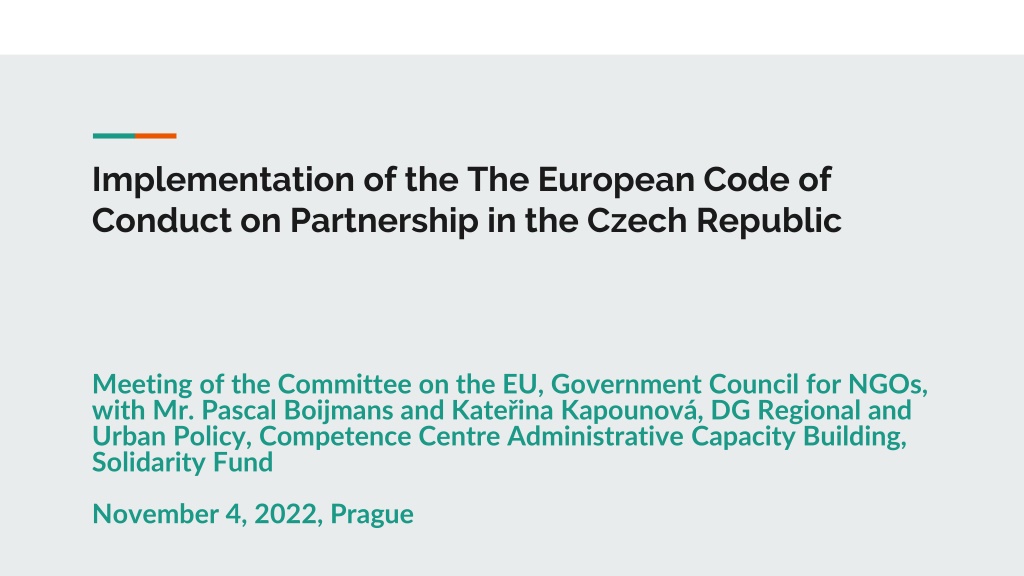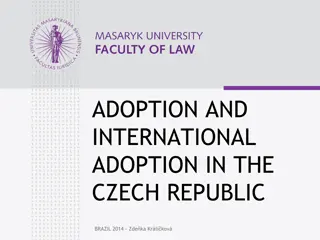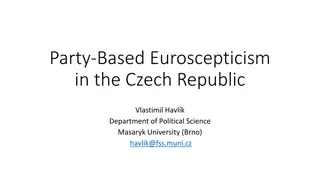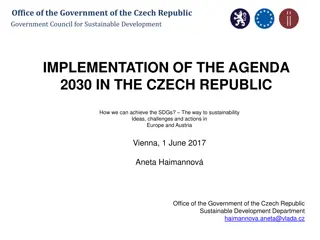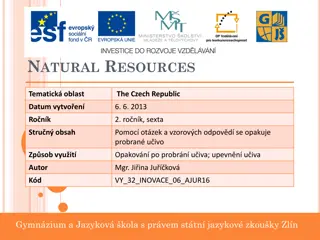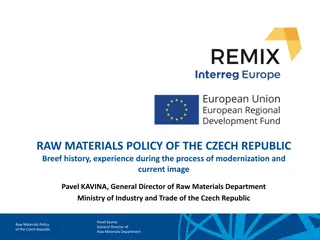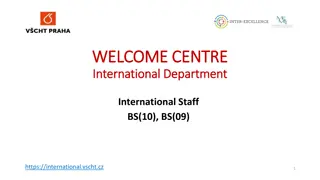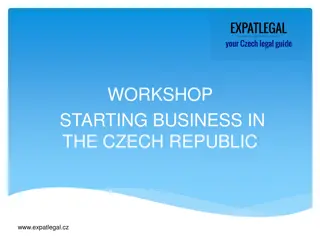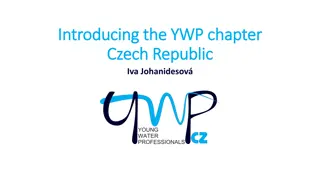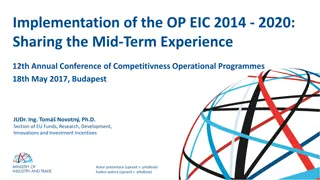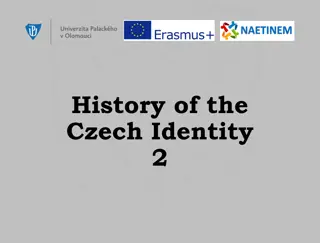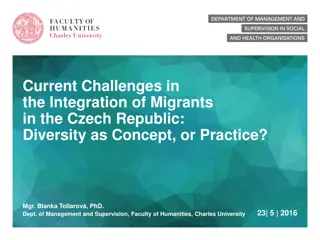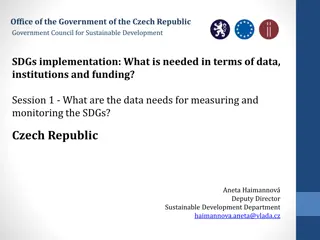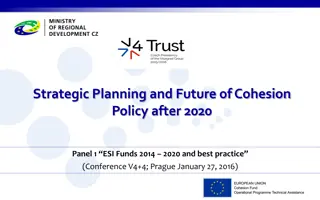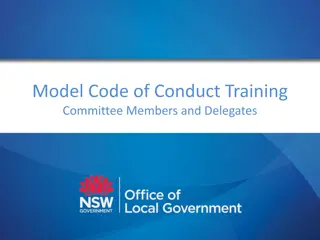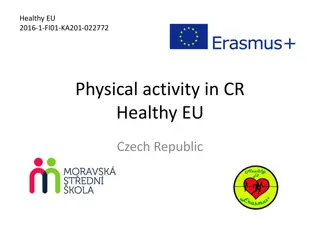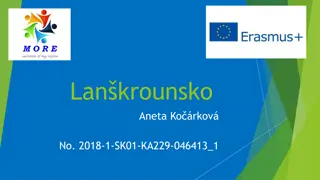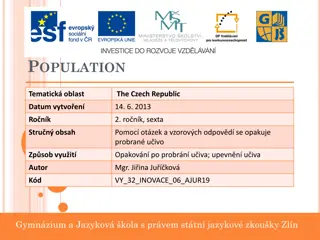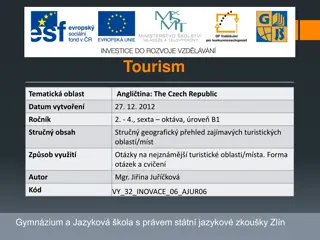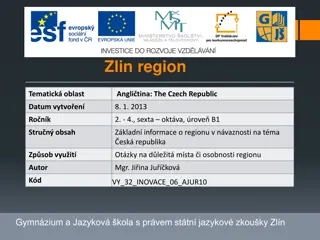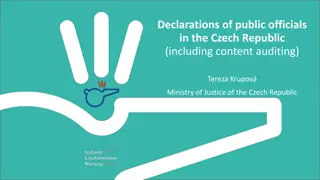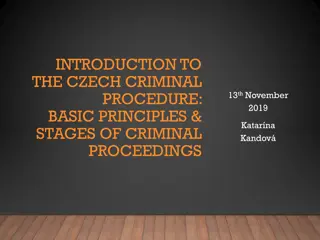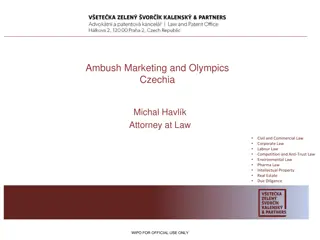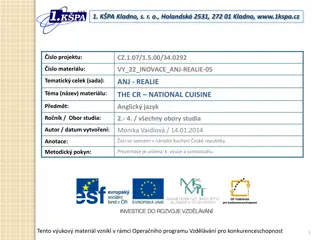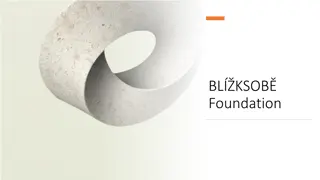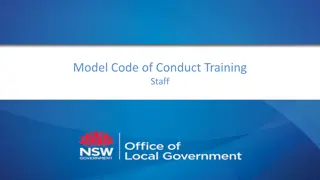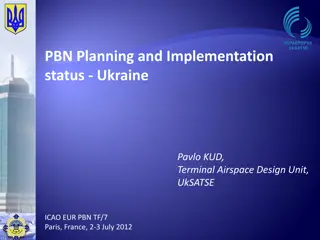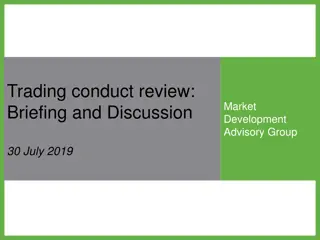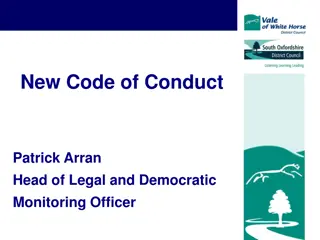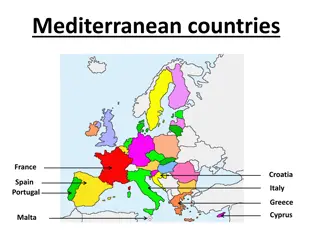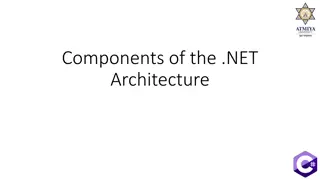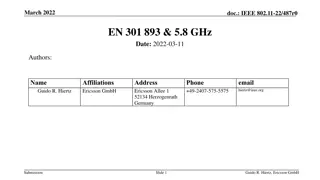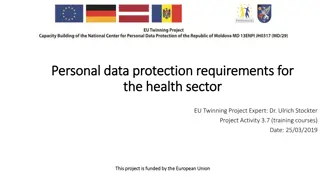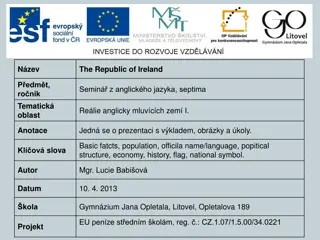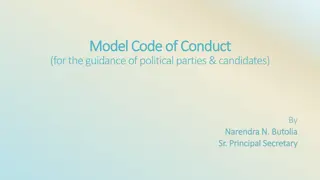Implementation of European Code of Conduct on Partnership in Czech Republic: Meeting Overview
Meeting held in Prague on November 4, 2022, discussed the implementation of the European Code of Conduct on Partnership in the Czech Republic. The agenda included goals such as understanding the partnership principle, clarifying development mechanisms, and exploring its application in EU financial facilities. The Committee on the EU reviewed key issues and emphasized building stakeholder capacity for active participation and monitoring. Efforts of the Committee so far were highlighted, including re-establishing membership and promoting open calls for nominations. The meeting aimed to enhance collaboration and improve the partnership principle.
Download Presentation

Please find below an Image/Link to download the presentation.
The content on the website is provided AS IS for your information and personal use only. It may not be sold, licensed, or shared on other websites without obtaining consent from the author. Download presentation by click this link. If you encounter any issues during the download, it is possible that the publisher has removed the file from their server.
E N D
Presentation Transcript
Implementation of the The European Code of Conduct on Partnership in the Czech Republic Meeting of the Committee on the EU, Government Council for NGOs, with Mr. Pascal Boijmans and Kate ina Kapounov , DG Regional and Urban Policy, Competence Centre Administrative Capacity Building, Solidarity Fund November 4, 2022, Prague
Agenda of the meeting 1. Goals of the meeting 2. Introducing the mandate and issue areas of the Committee on the EU of the Government Council for NGOs 3. Committee s view on the key issues of the implementation of the The European Code of Conduct on Partnership (ECCP) 4. Building the capacity of stakeholders to actively participate in monitoring committees and platforms and resources 5. ECCP and synergies with the RRF/Recovery and Resilience Plan
Goals of the meeting 1) To increase the understanding of the partnership principle and the evaluation of its implementation by the Czech Republic. 2) To clarify what can be done at different levels to further develop and improve the partnership principle (mechanisms, resources and capacities) and what are the priorities for the upcoming implementation phases of the current programming period or the preparation of the next one. 3) To explore if and how the principle of partnership can be applied as a principled approach to the design and implementation of EU financial facilities, incl. National Recovery Plan.
Introduction of the mandate and issue areas of the Committee on the EU The Committee is a permanent working body of the Government Council for NGOs It monitors information on the status of NGOs within the EU and related financial resources related to the Czech Republic's EU membership. It cooperates with ministries, other administrative authorities and local authorities responsible for the implementation of EU financial resources in the Czech Republic, and prepares proposals for measures to include NGOs in the use of these financial resources (mainly the Structural Funds, the Cohesion Fund and other EU funds). See the Statute of the Committee
The Committees efforts so far: Re-established membership and renewed functioning since January 2022. Supported the preferred method of nominating representatives as in the new methodology of participation of NGOs in consulting bodies - i.e. an open call for nominations through the Government Council for NGOs. Opened discussion on the first findings on composition of the monitoring committees based on two brief analyses (Glopolis, Roman Haken). Organised a meeting with the representatives of Government Council for NGOs in monitoring committees to identify shared issues across the monitoring committees and establish regular communication. EU Principle of Partnership presented at the Conference on Strategic Partnerships for Building a Democratic Society in Europe (Oct 17-18, Prague) to representatives of the ministries and NGOs.
Committees view on the key issues of the implementation of the ECCP 1) On a positive note, ESF+ Monitoring Committees are the few areas that pursue the involvement of stakeholders in policy making. 2) Proportionality of representation of the sectors and the expertise across operational programmes has not been balanced nor mainstreamed. 3) The nomination procedure to the monitoring committees is in the hands of the governing bodies of the operational programmes, therefore the system of nomination of representatives is not uniform and is governed by the statutes and rules of procedure of each monitoring committee. In some cases, the governing body approaches the actual members of the committees 2014-2020 period with the invitation to continue their membership without any open procedure or reviewing their mandates and nominating organisation.
Committees view on the key issues of the implementation of the ECCP 4) The identification of representatives on behalf of civil society has not been examined in a uniform manner. 5) Civil society representatives provide expertise in variety of topics. However, there has not been any coordinated approach to develop their capacities and provide the resources for their effective representation in the committees (which goes far beyond travel costs). 6) There is also a lack of communication with a wider NGOs constituency about the developments and decision-making in the platforms, so that the representatives can not only relay suggestions to the non-profit sector, but also bring additional ideas to the deliberations of the platforms and committees.
Key issues to clarify and discuss: 1) Composition of the monitoring committees and balance of the number of representatives in the MC - what are the criteria and guidelines to be followed? 2) Procedures of nomination of NGO representatives to the MC - from diverse approaches towards open and transparent nomination processes and under what conditions? 3) The mandates and legitimacy of the representatives - how to identify civil society representatives ?
Key issues to clarify and discuss: 4) What shall be the priorities for improving the implementation of the partnership principle in the current multiannual financial framework period? To increase the share of NGO representation, or the expertise needed for operational programmes? Methods of nominating representatives? Secure the resources for capacity development? 5) How to ensure the principle of partnership for the evaluation phase of the programming period and the preparation of the next one? 6) How the principle of partnership can be applied as a principled approach to the design and implementation of EU financial facilities, incl. National Recovery Plan?
Contacts and links: Silvie P chov , Chair of the Committee on the EU of the Czech Government Council for NGOs - silvie.pychova@skav.cz
